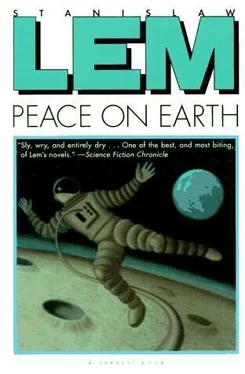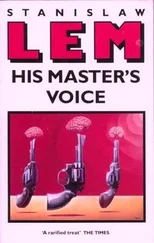The worst mess in my life. I got into it quite by accident, while trying to see Professor Tarantoga after my return from Encia. He wasn’t at home; he’d flown to Australia for some reason. He’d be back in a few days. Since he had a special kind of primrose that demanded constant watering, he asked his cousin to apartment-sit for him. Not the cousin who collects public-toilet graffiti around the world; another cousin, a paleobotanist. Tarantoga has a lot of cousins. I didn’t know this one. When I saw that he was in a bathrobe and had just risen from a typewriter, I apologized and turned to leave, but he said no, I wasn’t interrupting anything, I had arrived just in time: he was writing a difficult, trail-blazing book and he always liked to marshal his thoughts by telling someone, even a stranger, the idea of the chapter at hand. I feared he was writing some botanical treatise and would fill my head with weeds, bulbs, and perennials, but thank heaven it wasn’t like that. It was actually quite interesting. From the dawn of history, he said, in the savage tribes there were unconventional individuals, no doubt considered mad, who tried to eat whatever their eyes fell on: leaves, sprouts, stems, roots both fresh and dried, and all kinds of vegetation. They must have dropped like flies because so many plants are poisonous. Which didn’t deter the next generation of nonconformists, who carried on this dangerous work. It is only thanks to them that we know today how to use laurel leaves and nutmeg, that asparagus and spinach are worth the trouble, and that it’s better to give wild berries a wide berth. Tarantoga’s cousin acquainted me with the fact, ignored by world science, that to find which plant was the best to smoke, these Sisyphuses of antiquity had to gather, dry, ferment, roll, and turn into ash a good forty-seven thousand varieties of leaf before they discovered tobacco, because there was no sign on any sprig or branch that said this one will be good for cigars and snuff. Over many centuries whole armies of these prehistoric saints took into their mouths, bit, chewed, tasted, and swallowed everything that grew by a fence or from a tree, and this in every conceivable way, cooked and raw, with water and without, strained and unstrained, and in countless combinations, thanks to which we know today that cabbage goes with pork and beets with rabbit. The fact that in certain regions it’s not beets but red cabbage that goes with hare Tarantoga’s cousin attributes to the early rise of nationalities. One cannot imagine a Slav, for example, without borscht. Each nationality had its own experimentalists, and when they finally decided on beets, its descendants remained loyal to beets even though their neighbors turned up their noses at that vegetable. Tarantoga’s cousin plans to write another book, later, about cultural differences in gastronomy and the influence of national character (the correlation between mint sauce and English spleen, for example, in the case of the loin chop). He will disclose in it why the Chinese, who have been so many for so long, eat pre-chopped food with chopsticks and always have rice.
“Everyone knows,” his voice rose, “who Stephenson was and everyone honors him for his locomotive, his steam engine, but what is that banal relic next to artichokes, which will be with us forever? Vegetables do not age like technology…” The paleobotanist warmed even more to the subject. Was Stephenson risking his life when he put Watt’s steam engine on wheels? Did inventing the phonograph place Edison in mortal danger? They risked at most their families’ anger or bankruptcy. How unfair, that inventors of old-fashioned technology are all famous while no one even thinks about the great gastronomical inventors, or about raising a monument to the Unknown Chef as we do for the Unknown Soldier. And yet so many anonymous heroes fell in terrible agony after they made their brave experiments, with mushrooms, for example, where the only way of distinguishing poisonous from nonpoisonous is to eat and wait for the results.
Why are the schoolbooks full of kings who became king for no other reason than that daddy was king? Why do children learn about Columbus, the discoverer of America who discovered it only by accident, on his way to India, while there’s not one word about the discoverer of the pickle? We could have managed without America, sooner or later America would have discovered itself, but not the pickle, and then there would have been nothing to sit on our plate beside a roast beef sandwich. No, gastronomy’s nameless heroes were more heroic than those who found a soldier’s death! A soldier had to charge the enemy trench or face a court-martial, but nobody ever forced a person to brave the danger of an unknown berry. Tarantoga’s cousin would like to see a commemorative tablet over the door of every restaurant, with the inscription MORTUI SUNT UT NOS BENE EDAMUS.
The telephone rang. Tarantoga’s cousin handed me the receiver, saying it was for me. I was surprised, because no one knew about my return from the stars. It was someone from the office of the Secretary General of the UN. He had called Tarantoga for my address, and the cousin short-circuited the call, as it were, by giving the phone to me. Dr. Kakesut Wahatan, plenipotentiary extraordinaire and adviser on global security, wanted to see me as soon as possible. We made a date for the next day. I jotted the time into my notebook, having no idea what I was getting myself into. But I was glad for the call, because it had interrupted the flood of eloquence from Tarantoga’s cousin, who wanted to tell me next about spices and pepper. I took my leave, saying I had to go and promising (insincerely) that I’d drop in again soon.
Tarantoga told me later that the primroses died: his cousin, in his paleobotanical-gastronomical fervor, forgot to water them. A common phenomenon: he who devotes himself to the general does not concern himself with the particular. Thus the meliorists who would make the whole world happy but have no time for an individual.
I wasn’t told straight off that I would be asked to risk my neck for humanity by flying to the moon to see what those intelligent weapons were up to. Dr. Wahatan received me with smiles, coffee, and old cognac. He was Asian, a perfect Asian, because I learned nothing from him: he knew how to keep a secret. The Secretary General, he said, intended to read me, but being so very busy, he wondered if I could recommend the ten books I felt were the most important. Seemingly by coincidence, a couple of people dropped by and asked me for my autograph. It was hard to refuse. The talk turned naturally to robots, to the moon, but the moon mainly in its historical role: as a decoration in romantic literature. I learned much later that thiis was no normal conversation but a screening for security clearance, because the armchair in which I sat so comfortably was riddled with sensors that analyzed my reactions, through microscopic changes in muscle tension, to such key stimulus words as “moon” and “robot.” The diagnostic situation since I left Earth for the Calf constellation had reversed itself: I was evaluated by computer, my human interlocutors serving only to gather data. The next day, I went again to the UN office, I don’t know exactly why, and then they invited me again. They kept wanting to see me; I began having lunch with them in the cafeteria, which wasn’t bad, but the reason for these appointments remained unclear. There was talk about the United Nations publishing my collected works in all the languages of the world: more than four and a half thousand languages. I am not a vain man, but that seemed like a good idea to me. These new acquaintances all turned out to be fans of my Star Diaries. They were Dr. Rorty, Engineer Tottentanz, and the brodiers Cybbilkis, identical twins whom I learned to tell apart by their ties. Both madiematicians. The older, Castor, worked in algomathematics, which is the algebra of conflicts that end fatally for all parties. (This branch of game theory is sometimes called sadistics.) The other Cybbilkis, Pollux, was not a sadistician but a statistician and had the curious habit of suddenly interrupting a conversation with such questions as “How many people on earth at this very moment are picking their nose?” A phenomenal calculator, he could come up with answers to such things instantly. One of the four was always waiting for me in the vestibule as big as a hangar to take me to the elevator. We went either to the Cybbilkis’ workshop or to Professor Jonas Kuschtyk, who also loved my books and quoted from them, giving the page number and year of publication. Kuschtyk (like Tottentanz) worked with telefer theory, a new field of remote robotics. The telefer slogan: “Where a man can’t go, a remote can.” Kuschtyk and Tottentanz urged me to try remoting. It’s quite an experience to have all your senses connected by radio to a machine.
Читать дальше












